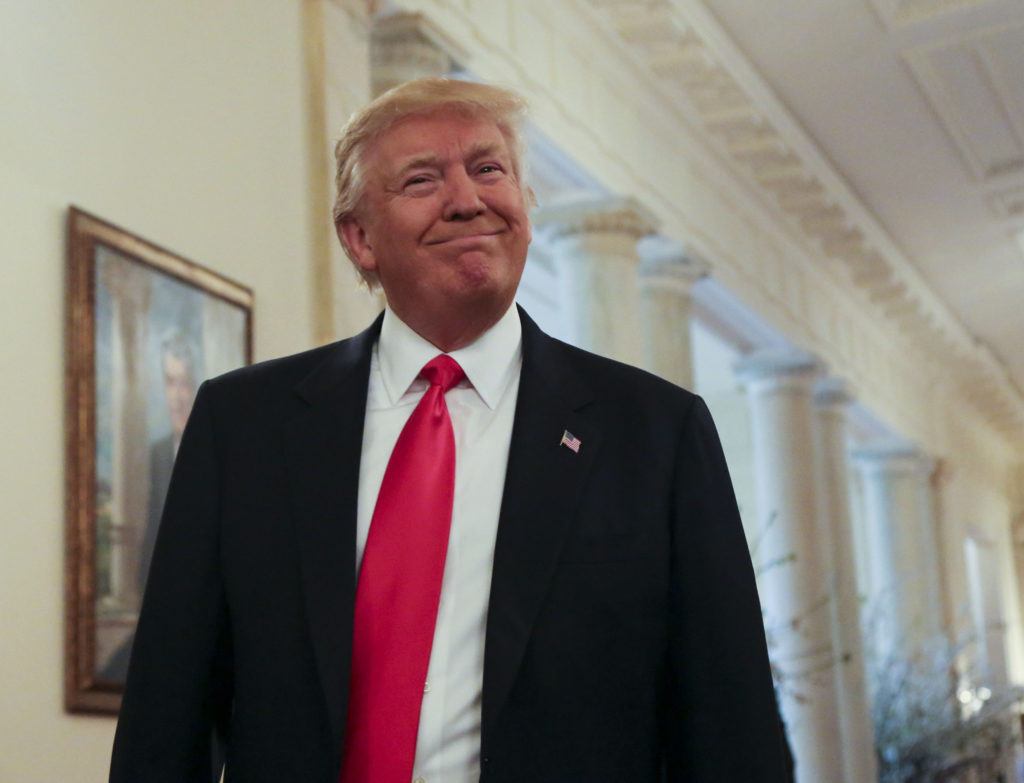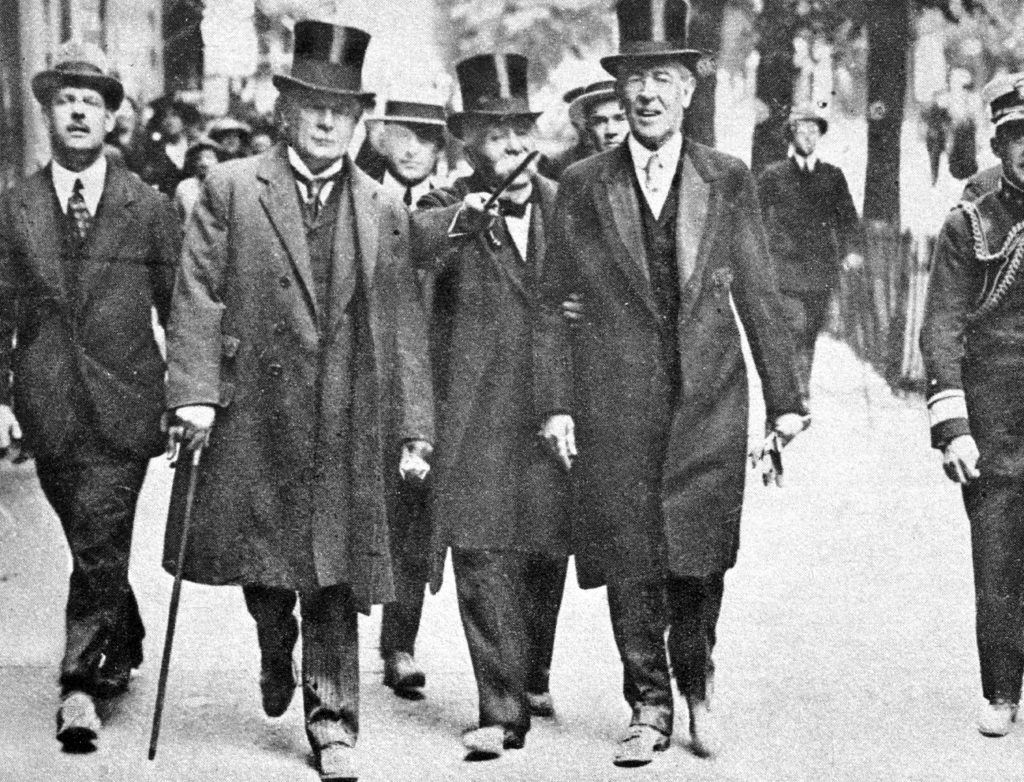Woodrow Wilson, left, and his war cabinet. Credit: Encyclopedia Americana/Google Images
President Trump has never made a secret of his contempt for the United Nations. Before his inauguration he called it “just a club for people to get together, talk and have a good time”. The vote in the General Assembly on 20 December calling on the United States not to move its embassy from Tel Aviv to Jerusalem (non-binding, 128 to 9, with 35 abstentions) will have done little to change that opinion.
The UN came formally into being on 24 October 1945, just a few months before Trump was born, though the name “United Nations” was coined by President Franklin D Roosevelt in January 1942, soon after the United States entered the Second World War. The UN’s roots go deeper, though – to President Woodrow Wilson’s “Fourteen Points”, his terms for peace in the First World War. The US had entered the war in April 1917 on the side of the Allies – Great Britain, France, Italy, and Russia – although Wilson insisted on the (largely symbolic) term “cobelligerent” rather than “ally” to define the country’s status.
The US (briefly) emerges from isolationism
This week (8 January 2018) is the centenary of Wilson’s address to Congress in which he outlined his peace terms. While speaking directly to Congress, however, Wilson had two wider audiences, the warring powers – in particular the enemy – and the American people. He judged that America, instinctively and traditionally isolationist (although some, like the former President Theodore Roosevelt, had advocated joining the war almost from the outset) needed an overarching war aim that appealed to idealism. That aim reflected his own view: the country had entered the conflict as “a war for freedom and justice and self-government”.
This, Wilson believed, would also serve to break the will of the Central Powers by promising not simply an end to the slaughter, but a just peace. While he also believed that the allies had an urgent desire for an end to the slaughter, however, he underestimated their will to continue the fight. Casualties notwithstanding, their civilian populations (with the exception of Russia) were not suffering the same privations as those of the Central Powers – serious malnutrition, economic hardship and general war weariness.
He certainly wanted to exploit the fragility of the enemy’s “multinationality” too. The Central Powers principally comprised three multi-national empires: the German Hohenzollern (the most homogeneous, but not without internal tensions), the Austro-Hungarian Hapsburg (the most polyglot, culturally and religiously diverse), and the Ottoman Turkish, which even before the war resembled the Roman Empire in its over-extended, terminal stage. Wilson deliberately played to the growing ethnic unrest, principally in the Austro-Hungarian Empire, by promising national independence and self-determination for all peoples involved in the conflict, including those of the former Russian Empire, which since the Bolshevik Revolution in November 1917 had withdrawn from the Allied war effort to negotiate a separate peace, and was in a state of incipient civil war.

The promise of national independence for the peoples of Central Europe was also instrumental in mobilising support among immigrant groups in America.

 Main Edition
Main Edition US
US FR
FR







Join the discussion
Join like minded readers that support our journalism by becoming a paid subscriber
To join the discussion in the comments, become a paid subscriber.
Join like minded readers that support our journalism, read unlimited articles and enjoy other subscriber-only benefits.
Subscribe